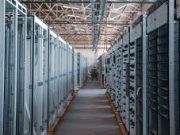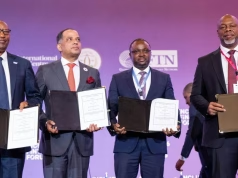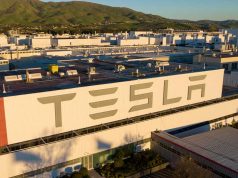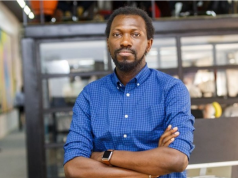Nigeria’s Dangote Group has reignited its long-delayed ambitions in Zimbabwe, unveiling a sweeping $1 billion investment package that includes a 2,200-kilometer fuel pipeline from Namibia’s Walvis Bay port to Harare, along with plans for a cement plant, fertiliser manufacturing, and power generation. The move marks a major vote of confidence in Zimbabwe’s reform agenda and signals a pivotal shift in investor sentiment toward one of Africa’s most challenging yet strategically positioned economies. This Dangote Group Zimbabwe investment could reshape regional energy logistics and industrial capacity—if it overcomes the very hurdles that derailed past efforts.
Aliko Dangote, Africa’s richest man and chairman of the Lagos-based conglomerate, confirmed the deal after high-level talks with President Emmerson Mnangagwa in Harare, calling the current government “solid” and praising what he described as improved transparency and policy stability. “Now the government is solid. There is a lot of transparency,” Dangote said. “Policy efforts to stabilise the economy have given me the confidence to proceed.”
For nearly a decade, Dangote’s interest in Zimbabwe was met with frustration. His first overture in 2015 centered on developing the Sengwa coal fields into a 2,800MW coal-fired power plant—a project that promised to eliminate the country’s chronic electricity shortages. But negotiations collapsed over two critical issues: Harare’s refusal to allow dollar-denominated tariffs and its reluctance to guarantee export rights for coal destined for Dangote’s existing cement plant in Ndola, Zambia.
A second attempt in 2018 ended similarly, with sources citing demands for bribes and inconsistent regulatory assurances. At the time, investors viewed Zimbabwe as unpredictable, marked by opaque decision-making and an unstable currency regime.
Now, under the new agreement, Dangote Group aims to build a sub-regional petroleum pipeline from Walvis Bay, Namibia—a deep-sea port with growing refining potential thanks to offshore oil discoveries—to Harare. As a landlocked nation dependent on imported fuel, Zimbabwe currently relies on the aging Feruka pipeline from Mozambique’s Beira port, which has suffered repeated disruptions due to vandalism and maintenance issues. A second, more secure supply route would not only enhance energy security but position Zimbabwe as a regional fuel distribution hub.
Beyond energy, the Dangote Group Zimbabwe investment includes plans for a state-of-the-art cement plant to meet surging domestic demand driven by a construction boom, particularly in infrastructure. Local producers are already struggling to keep pace, leading to increased imports. Dangote’s entry could boost supply, lower prices, and reduce foreign exchange outflows.
The group is also exploring fertiliser production—an area of national priority given Zimbabwe’s agricultural ambitions—and additional power projects to support industrial expansion. These plans echo the vertically integrated model Dangote has successfully deployed across Nigeria and other African markets, combining raw material access, captive power, and large-scale manufacturing.
Economists say the announcement is more than just a business deal—it’s a political signal. Paison Tazvivinga, Pretoria-based economist, called it a rare sign of investor optimism. “It shows that some investors are prepared to take a long-term bet on Zimbabwe,” he said. “They believe they can bring in capital and earn a return like any investor would expect.”
Stevenson Dhlamini, senior lecturer at Zimbabwe’s National University of Science and Technology, noted that for an industrialist like Dangote, whose projects span decades, the real question isn’t short-term costs but long-term policy credibility. “What appears to have changed is the emergence of a more centralised and streamlined framework for strategic investments,” he said. “The administration now has a clear imperative to attract foundational, nation-building capital.”
Currency stability remains a key concern. Zimbabwe recently introduced the ZiG (Zimbabwe Gold), a gold-backed currency aimed at restoring confidence after years of hyperinflation. While still fragile, the new tender has drawn cautious support. Sources familiar with the talks suggest that enforceable currency and tariff guarantees were likely central to Dangote’s renewed commitment.
Freeman Munisi Mateko, a Zimbabwean economist based in South Africa, stressed the potential impact: if delivered, the pipeline and associated projects could create thousands of jobs in a country where unemployment exceeds 30%. “This would be a significant political and economic win for Mnangagwa’s government,” he said.
Following the Harare meeting, Dangote traveled to Zambia to meet President Hakainde Hichilema—underscoring the regional scope of his vision. The Nigerian tycoon already operates a $500 million cement plant in Ndola, complete with a 30MW captive power station—a model he now hopes to replicate in Zimbabwe.
If completed, the Dangote Group Zimbabwe investment will not only test the durability of Harare’s reform promises but could redefine how Africa’s private sector engages with complex markets: not through charity or concession, but through strategic bets on transformation.
As one observer put it: “Africa doesn’t need saviors. It needs builders. And Dangote may finally have found the moment to build in Zimbabwe.”
Follow us on Instagram.
https://www.instagram.com/businessnewsng?igsh=ZXpweTdjOGF1ZXdu

























